
McKenzie Prillaman was the Spring 2023 science writing intern at Science News. She holds a bachelor’s degree in neuroscience with a minor in bioethics from the University of Virginia. She also studied adolescent nicotine dependence as a postbaccalaureate fellow at the National Institute on Drug Abuse. After figuring out she’d rather explain scientific research than conduct it, she worked at the American Association for the Advancement of Science and then earned a master’s degree in science communication from the University of California, Santa Cruz. Her work has appeared in Nature, Scientific American, Mongabay, Eos and the Mercury News, among other publications.

Trustworthy journalism comes at a price.
Scientists and journalists share a core belief in questioning, observing and verifying to reach the truth. Science News reports on crucial research and discovery across science disciplines. We need your financial support to make it happen – every contribution makes a difference.
All Stories by McKenzie Prillaman
-
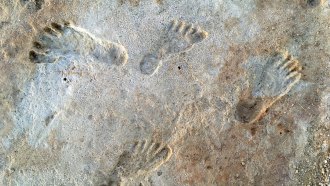 Archaeology
ArchaeologyHuman footprints in New Mexico really may be surprisingly ancient, new dating shows
Two dating methods find that human tracks in White Sands National Park in New Mexico are roughly 22,000 years old, aligning with a previous estimate.
-
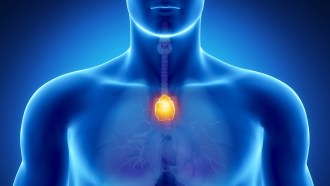 Health & Medicine
Health & MedicineThe thymus withers away after puberty. But it may be important for adults
The thymus is considered somewhat unnecessary in adults. But a new study finds that its removal is associated with heightened risks of death and cancer.
-
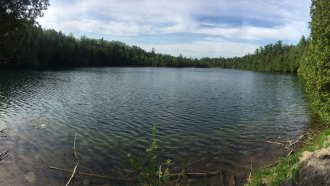 Climate
ClimateCanada’s Crawford Lake could mark the beginning of the Anthropocene
The mud of a Canadian lake holds an extremely precise record of humans’ influence on Earth. But the Anthropocene isn’t an official geologic epoch yet.
-
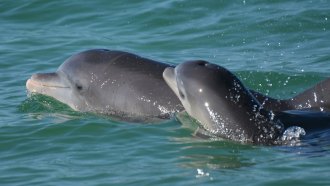 Animals
AnimalsBottlenose dolphin moms use baby talk with their calves
When their babies are near, bottlenose dolphin moms modify their signature whistles, similar to human parents speaking in baby talk.
-
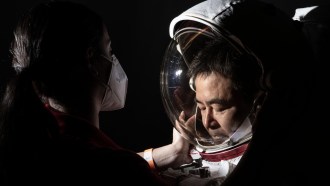 Neuroscience
NeuroscienceBrain cavities that swell in space may need at least 3 years to recover
MRI scans of astronauts show that duration in space and time between flights affect how much the brain’s fluid-filled cavities expand during missions.
-
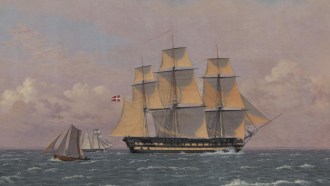 Chemistry
Chemistry19th century painters may have primed their canvases with beer-brewing leftovers
Several paintings from the Danish Golden Age contain remnants of brewer’s yeast, barley and other grains commonly used to brew beer.
-
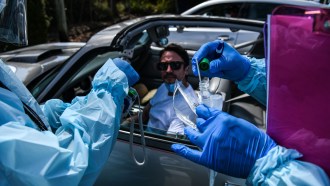 Health & Medicine
Health & MedicineWHO declares an end to the global COVID-19 public health emergency
Global COVID-19 deaths are down and immunity is up. But with the virus here to stay, it’s time to shift to more long-term health measures.
-
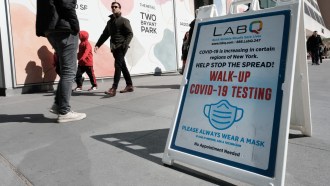 Health & Medicine
Health & MedicineThe U.S. COVID-19 public health emergency is ending. What does that mean?
The declaration, made early in the pandemic, made tests, vaccines and treatments free to all. On May 11, the proclamation ends.
-
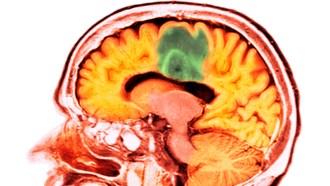 Health & Medicine
Health & MedicineUltrasound allows a chemotherapy drug to enter the human brain
An early-stage clinical trial demonstrates a technique for getting a powerful chemotherapy drug past the usually impenetrable blood-brain barrier.
-
 Health & Medicine
Health & MedicinePets and people bonded during the pandemic. But owners were still stressed and lonely
People grew closer to their pets during the first two years of COVID. But pet ownership didn’t reduce stress or loneliness, survey data show.
-
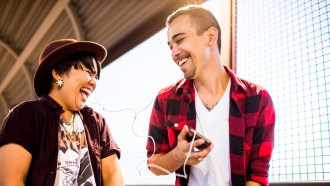 Psychology
PsychologyNative language might shape musical ability
People who speak tonal languages, where pitch alters meaning, are better at perceiving melody but worse at rhythm than speakers of nontonal languages.
-
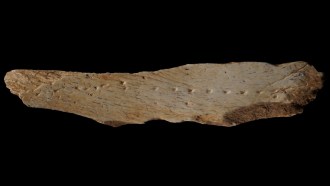 Archaeology
ArchaeologyA prehistoric method for tailoring clothes may be written in bone
A punctured bone fragment was probably a leatherwork punch board. Perforated leather sewn together may have been seams in clothing.